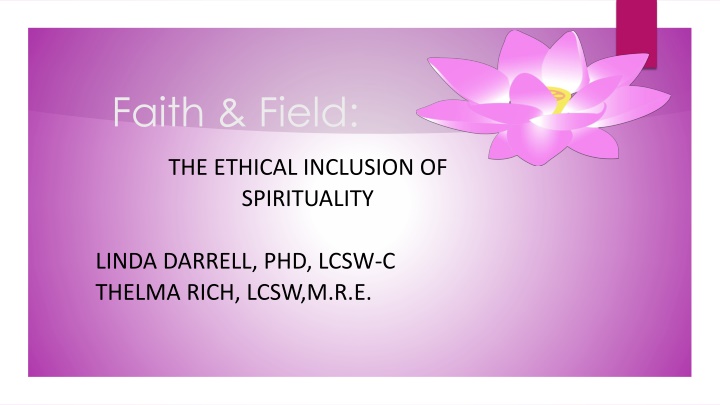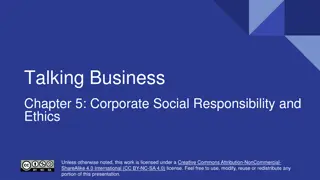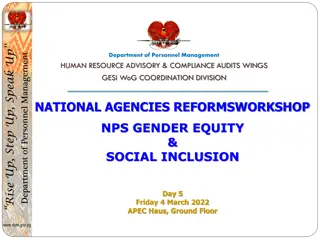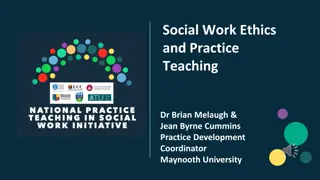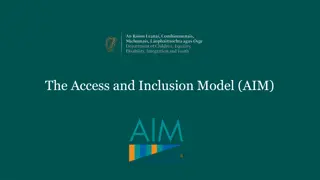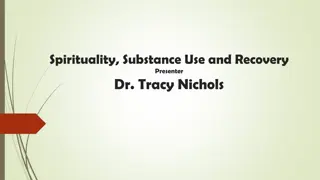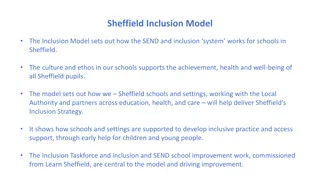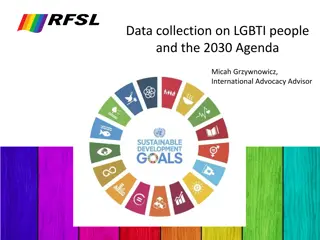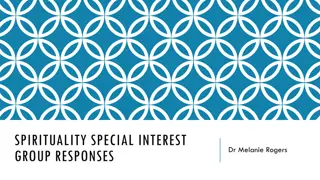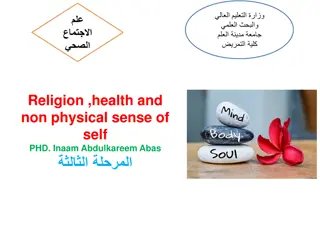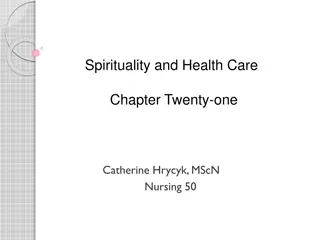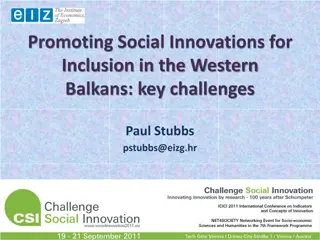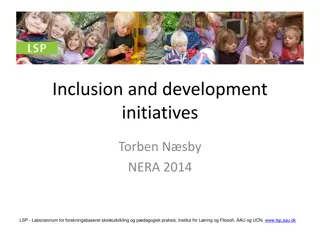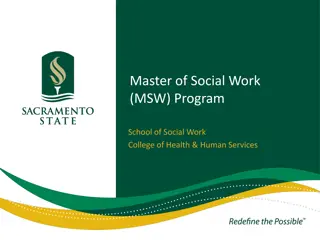Ethical Inclusion of Spirituality in Social Work
In social work, it is vital to respect clients' spiritual beliefs while maintaining professional boundaries. Practitioners and students must navigate this delicate balance through self-awareness and cultural competence. Understanding the impact of spirituality on relationships and ethical practice is essential for effective client care and personal growth.
Download Presentation

Please find below an Image/Link to download the presentation.
The content on the website is provided AS IS for your information and personal use only. It may not be sold, licensed, or shared on other websites without obtaining consent from the author.If you encounter any issues during the download, it is possible that the publisher has removed the file from their server.
You are allowed to download the files provided on this website for personal or commercial use, subject to the condition that they are used lawfully. All files are the property of their respective owners.
The content on the website is provided AS IS for your information and personal use only. It may not be sold, licensed, or shared on other websites without obtaining consent from the author.
E N D
Presentation Transcript
Faith & Field: THE ETHICAL INCLUSION OF SPIRITUALITY LINDA DARRELL, PHD, LCSW-C THELMA RICH, LCSW,M.R.E.
Faith and Field ETHICS National Association of Social Work Joint Commission on Hospital Accreditation Commission on Accreditation of Rehabilitation Facilities
Faith & Field Definition: Spirituality is a commitment to choose, as the primary context for understanding and acting, one s relatedness between one s self and other people, one s physical environment, one s ancestors, and a Higher Power, or God. It places relationships at the center of awareness, whether they are relationships with the world or other people, or relationships with God or other nonmaterial beings (Griffith, J.L. & Griffith, M.E. (2007 pp. 15-16). Larkins (2010) indicates that spirituality can also be seen as the individual s sense of connectedness, meaning, peace, consciousness, purpose and service that develops across the lifespan.
Faith & Field From the social work practitioner s and social work students perspective, both need to be clear about their own spiritual beliefs (a part of self-awareness). Practitioners and interns must never force their personal spiritual beliefs on clients or allow the spiritual beliefs of their client to influence their work with clients. Practitioners and social work students must learn to be non-judgmental regarding a client s spiritual beliefs, which is a part of the process of becoming culturally competent.
Faith & Field If a client should inquire about a practitioner s or students spiritual beliefs, both the student and practitioner must be clear that their spiritual belief is in no way meant to influence the client s beliefs or values. The practitioner and student must be very clear that the client must think through this matter on their own or with their spiritual advisor (Darrell, L., & Rich, T. 2017)
Faith & Field Social work Interns would benefit from developing an understanding of religion and spirituality as a way to ground their thinking in this area, as they work on micro, macro and mezzo levels (Darrell, L. & Rich, T. 2017). Student (Spiritual Self-Assessment): Utilizing a brief spiritual assessment tool F.I.C.A.
Faith & Field Making the Connection Meaning and Purpose in Work Recognition and discernment for ethical practice Spiritually Based Self-Care (Larkin, S. 2010).
Faith & Field Variety of Assessment Tools 1. F.I.C.A Faith or Beliefs Importance and Influence Community Address Suggested Setting: Classroom, Case-Management, Faith Based Agencies Puchalski, C. (1999)
Faith & Field 2. F.A.C.T Faith and/or Beliefs Active and/or Available, Accessible Coping and/or Comfort, Conflict or Concern Treatment Suggested Setting: Health Care facilities (Acute and Non-acute) LaRocca-Pitts,M.2008
Fact & Field Spiritual Ecomaps A diagrammatic Tool for Assessing Marital and Family Spirituality A valuable supplement to a Genogram Based on an anthropological framework conceptualized in a spiritual formation tradition. Ecomaps focus on current existential functioning to environmental systems (genograms focus on functioning over time). Suggested Settings: Family Counseling, Faith Based Agencies, Classroom Hartman, 1975
Faith & Field Formation of the Spiritual Ecomap Based on Case study Construction of the Ecomap
Faith and Field LINDA AND THELMA THANK YOU
